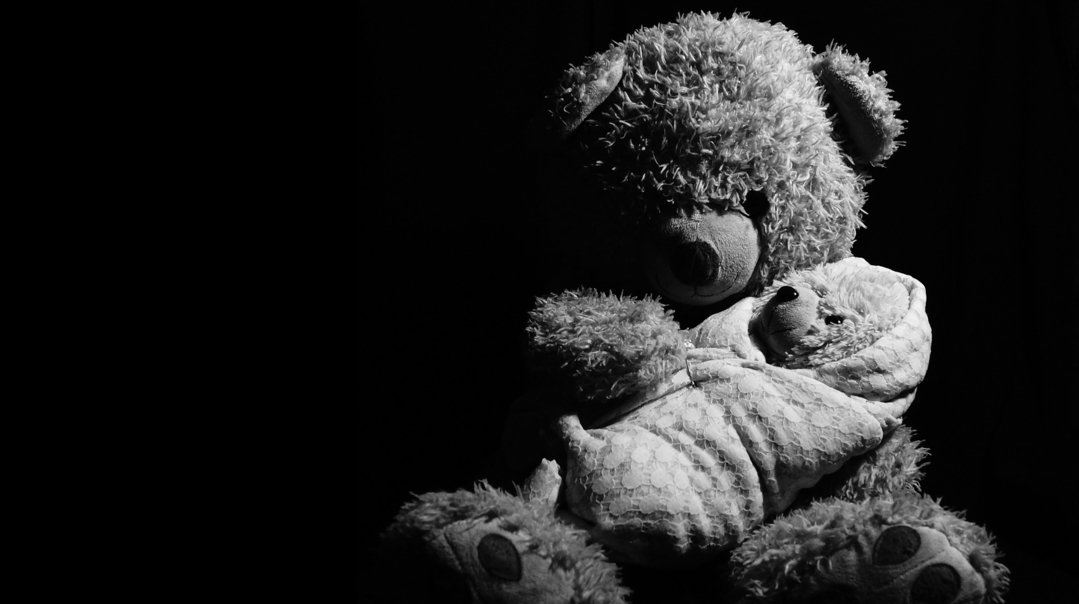Twisted Ties

Tzivy owns me, and like a puppy, I remain hers, exclusively.

As told to Batsheva Eichelberg
Ten minutes left until the global regent. The Byzantine Empire — I don’t know this part. I skim my notes, frantically committing names and dates to memory.
That’s when Tzivy breezes over. “Oh, perfect! I should probably read some of this stuff before the bell.” Tinkling laugh, flick of bangs. “You have such amazing notes.”
“I’m not done here, Tziv.”
Blue eyes roll, the same eyes that view top scores as significant only if they’re effortless. “Oh, come on. I bet you can recite your notes backwards by now.”
My cheeks are on fire. True, I’d studied for hours. It’s a lot of material, and I want to do well. So I fried my brain cramming, while Tzivy allegedly partied, and now my limp hands relinquish my notes to her. It’s only fair. She’s my best friend.
The grades come in. I score three points higher than Tzivy. She snorts. “Marks…”
Snort until tomorrow, I know she’s green inside. Brains, charisma, luck — these things matter in high school.
When I’m elected G.O. president, she tells me how sorry she feels for me, how our school chooses girls who need a boost. When I’m honored as valedictorian, she mocks clichéd graduation speeches. I know she does it to mask her envy. The two of us teeter at the top of the class — socially, academically, even spiritually — and we’re neck and neck at the summit.
Still, I’m always a step ahead, and everyone knows it.
Like true BFFs, we hijack our families’ phones for hours every night. We do it all — sleepovers, Shabbos walks, adventures. However, her barbs, laced with cynicism and blistering grudges, hurt. Most of the time I laugh along, but the constant digs pierce through the thick skin I tell myself I’ve developed, and I break down. Cold wars erupt between us with alarming frequency. I’m always making up with her, though, always confessing to a list of “sins” I never committed.
I could handle the competition. What makes me develop a deep-seated hatred toward Tzivy is the manipulation. I’m afraid to succeed. I’m afraid to fail. I’m afraid of losing her.
It’s as though Tzivy has purchased the ownership rights over me, and I faithfully abide by her rules. She screens my social interactions. I know she’ll desert me if she feels threatened.
“You and Avigail are tight,” she says coolly when she sees us posing for a picture together. Her smirk makes my blood go cold. I like Avigail. We have a rapport. We… we could be friends.
Only we can’t. Not with Tzivy’s scorn ringing in my ears. Not with her unspoken threat of abandonment. Tzivy owns me, and like a puppy, I remain hers, exclusively.
Tzivy, on the other hand, has many friends. I can’t know where I stand with her. One day I’m her best friend, the next day she’ll say, “Me and Rochel are like sisters.” I realize how she hangs around me when it makes her look pretty; when our mechaneches is around or when I break my leg and need help getting around.
When we return from seminary, our class plans an overnight reunion trip. We arrange carpools, and my phone has seizures as the technicalities are hashed out on our class group chat. I don’t say a word. I’m waiting, waiting for Tzivy to invite me for the ride. She’s one of the few girls with an available car.
The invitation never comes. We’re leaving pre-dawn. Hours before the trip, I call Avigail. Yes, she has room in the car. “And please, come sleep over in my house. We’ll get a head start on the fun!”
I have a bad feeling about this.
With reason.
“You had a sleeeeepover with Avigail?”
I want to confront her for inviting three of her “friends” and not me, but I can’t even stammer a response to disdain.
Throughout the trip, Tzivy ignores me. I hang around Avigail, feeling ill. Tzivy’s having a blast with her million friends, never accidentally glancing at me. Then, suddenly, just before we head back home, she grabs my arm, camera dangling from her fingers. “Psst, Malkie! Can you take a picture of me and Sora Batya? And then we’ll do one together.”
I twist my mouth into a stupid grin. She has to do this. Whoever sees her photo album will expect to see this picture.
For six weeks, we don’t talk. People talk to me about her, innocently, and I pretend I know what’s happening in her life. It’s torture. After six weeks, I resign and call her up to apologize. Once again, I’m the dove.
When I get married, everything changes. “This is ridiculous,” my husband asserts. “She has you wrapped around her finger. You call this a friend?”
With logic and love, he convinces me to cut her out of my life. What’s more, he advises not to explain why I’m doing this. “Neither of you is ready to talk. Nothing good can come of it.”
Just like that, Tzivy is gone.
Except … she isn’t gone. I’m sick at first, certain I won’t survive. I have to talk to her. I need her.
But then a month passes, and another, and a year. Eight years pass.
Time is a magical thing. It knits thin fibers over bleeding hearts, slowly healing wounds considered beyond repair. With Tzivy out of my life, I’m able to emotionally disconnect and discover parts of myself I never knew existed. An inner confidence buds, and I have the courage to shred the façade of perfection I’ve lived with for so many years. I learn to be me.
My family grows, but Tzivy’s doesn’t. I wait, frantic paranoia gripping my heart. This is a classic. Simmering grudges causing suffering later in life. With burning urgency, I daven for her to have a baby. When at last she does, I’m genuinely happy.
After eight years, Tzivy reaches out. Her voice startles dusty memories out of buried caves in my mind. I tremble as we make plans to meet.
“Don’t let her come too close,” my husband warns. “You can’t have her hurting you again.”
I wave him off. “I’ll meet her and see how it goes. I think… it’s okay. People change, we’re not teens anymore.”
Meeting Tzivy is like stepping back in time. She’s as perfect and beautiful as she always was. I swallow. Maybe I was too quick to agree to this.
“Should we talk about what happened?” she starts.
I nod. We start. We take our history apart, bit by bit, scrape angry memories raw, but then I stop. “Why are we doing this?”
Tzivy blinks. “Get it off our chests?”
“There’s nothing on my chest,” I whisper. And I mean it.
Tzivy releases breath, nods, smiles.
Coming face to face, I expected my stomach to drop, my throat to constrict. But — nothing. It’s gone. There’s no anger, no pain. I face her calmly, my eyes bold and clear.
Our heels sink softly into the apple blossom-studded path. We talk about now, about tomorrow. About the journeys we’ve taken, individually. Separately.
And we live happily ever after.
We do.
But not the way I envision.
With the mountain of reconciliation scaled, I expect our paths to fuse. We’ll hold hands, forge forward together over lapping waves and through occasional storms. We’ve been apart for so long. We’re eager to reconnect.
It doesn’t happen. Tomorrow is the same as yesterday. There’s a hum in the air and I smile at random, but as the weeks tumble onward, Tzivy doesn’t become a household name. We update each other on family simchahs, call to wish each other gut yuhr, but that’s it. The relationship boundaries my husband advocated aren’t necessary.
Yet still, it’s not the same. Although we go our separate ways once more, there’s a thread connecting us now, a rope tied with a firm knot where the rift had once been. When I think of her today, it’s with the pride of growth, with a lingering scent of apple blossom.
(Originally featured in Family First, Issue 537)
Oops! We could not locate your form.











